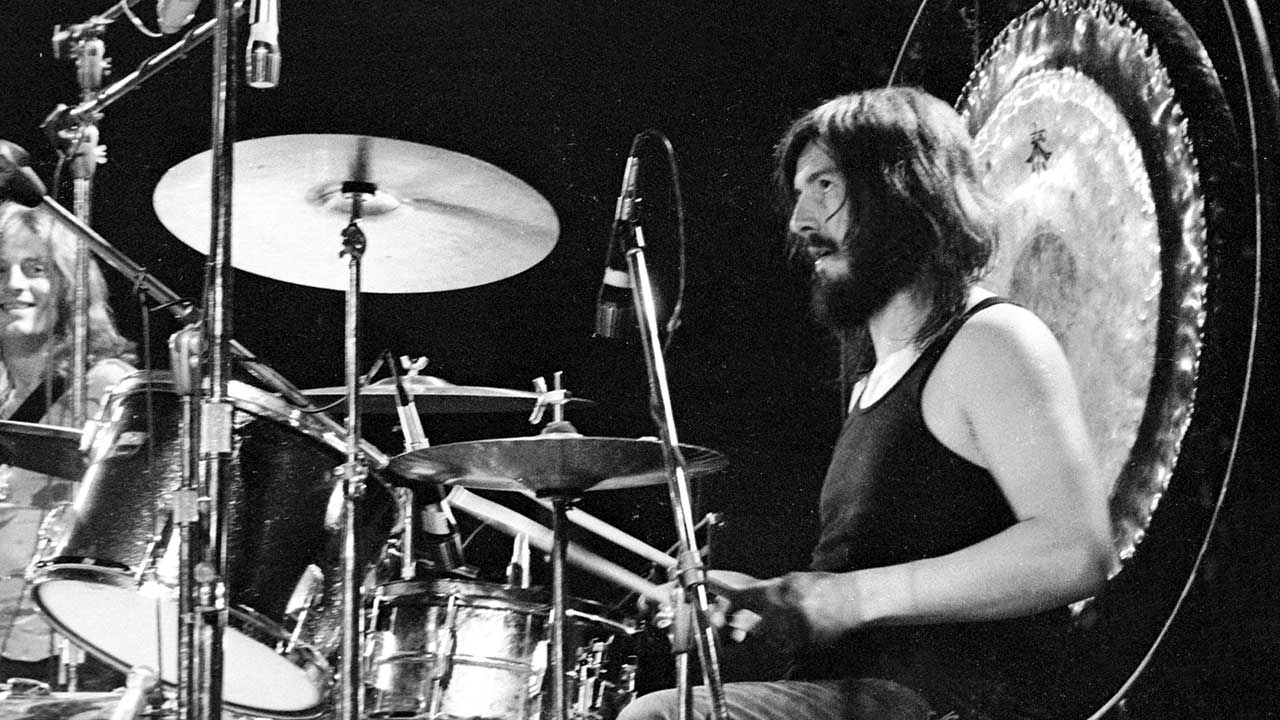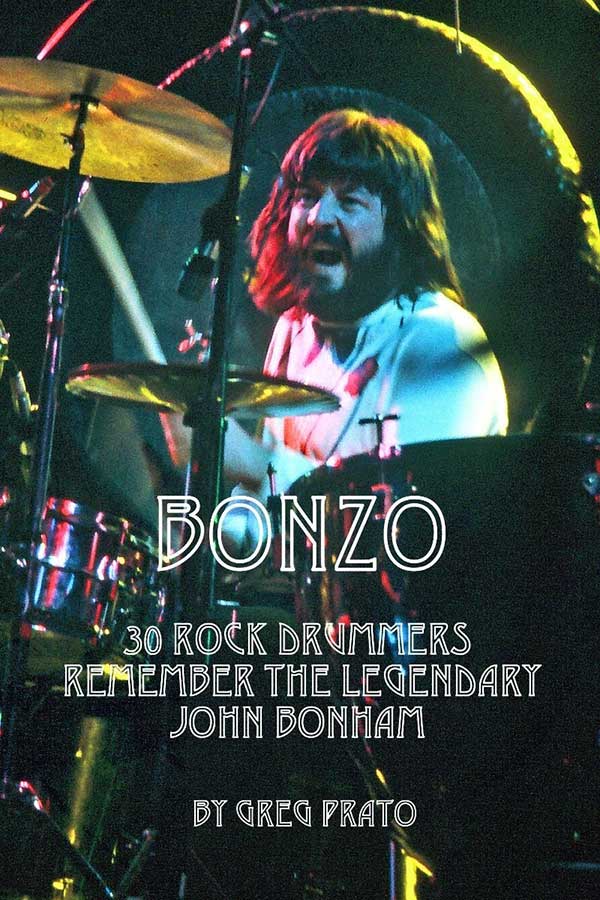Why John Bonham was a genius, by Mike Portnoy
A new book interviews 30 drummers about the brilliance of Bonzo - here's Mike Portnoy

Greg Prato's new book Bonzo: 30 Rock Drummers Remember The Legendary John Bonham does exactly what the title promises: talks to some of rock's finest sticksmen on the subject of one of the all-time greats, John Bonham.
Amongst the interviewees are Lee Kerslake, Herman Rarebell, Charlie Benante, Frankie Banali, Corky Laing, Simon Wright and Greg Bissonette.
In this excerpt, drummer extraordinaire Mike Portnoy explains why John Bonham was unique.

There were so many things. First of all, the sound. He had a sound about him. Whenever people talk about John Bonham, they talk about, “Oh, how did they mic the drums?” or “What kind of drums did he use?” or “What kind of sticks did he use?” I don’t believe the drums or the mic'ing had anything to do with it. I think they had a little to do with it, but it was what was in John’s body and his hands.
It’s the way he played. I think you could probably sit him down at any kit, in any environment, and it’s going to sound like John Bonham. And that is the key to any great musician – when you have your own sound and style. He had that sound. He had that groove. He was just like a solid anchor, and you could feel that kick drum, and you could feel the hi-hat and the snare groove.
At times, it was huge. You listen to the beginning of When The Levee Breaks – it’s just the biggest drum intro of all-time. And then you also hear these subtleties – you listen to the groove in Fool In the Rain. He also knew how to play with finesse and subtlety, as well.
So, I think it was the combination of both of those extremes. And he also had a great ear for improvising and jamming. If you listen to any live Zeppelin recording – whether it be the official stuff like The Song Remains The Same or How The West Was Won, or even pull out some bootlegs – he played every song and every show completely differently.
Sign up below to get the latest from Classic Rock, plus exclusive special offers, direct to your inbox!
I think a big part of that was that they listened to each other. You could always tell that Bonham was listening to what was surrounding him, and reacting. I think that was a big part of Zeppelin’s chemistry and magic.
Moby Dick was the quintessential “drum song.” I think of seeing the movie The Song Remains The Same for the first time. I remember when it came out – you had to go to a midnight movie theatre to see it at midnight on Saturday night. It was never shown on TV and we didn’t have VCRs or videotapes back then at that point. The way I saw The Song Remains The Same first was – believe it or not – my local library was doing a showing of it. So, I went to my local library and I watched The Song Remains the Same.
And what stood out for me and the thing that I always remember was Moby Dick. Here, you have in the middle of this concert movie a song with a 20-minute drum solo. They do the first 16 bars of Moby Dick as a band, and then they walk off, and Bonham begins his solo. Here comes this mammoth drum solo. And a lot of times, drum solos are a point where everybody goes to the bathroom. But when Bonham did a solo, people were captivated.
It was like going on a musical journey or an acid trip – the way he flanged the drums, and the way he would throw away his sticks and play with his hands. He just had this signature style, and I think Moby Dick was his signature piece. And for me, that was the moment in The Song Remains The Same that always stood out from the movie.
When the Levee Breaks is classic Bonham. The beginning and end of Rock And Roll – it starts with one of the most famous drum intros ever and ends with one of the greatest drum solos ever. That’s another perfect one. Obviously, Moby Dick. Black Dog, only because it shows how unbelievably creative he was. You don’t realise how complicated that riff is, until you actually try and figure out what the hell the drums are doing. So, the grooves within that song are absolutely brilliant.
Kashmir is a signature Bonham groove. But there’s so many – I can literally go through the whole catalog and every song does it for me.
Something that I didn’t realise until years later: John had a good singing voice, as seen and heard on Bron-Y-Aur Stomp from the ’75 Earls Court footage. He was the other singer in Zeppelin. Jimmy Page and John Paul Jones never sang – it was always Bonham, which a lot of people don’t realise.
Greg Prato's 30 Rock Drummers Remember The Legendary John Bonham is out now.

Contributing writer at Classic Rock magazine since 2004. He has written for other outlets over the years, and has interviewed some of his favourite rock artists: Black Sabbath, Rush, Kiss, The Police, Devo, Sex Pistols, Ramones, Soundgarden, Meat Puppets, Blind Melon, Primus, King’s X… heck, even William Shatner! He is also the author of quite a few books, including Grunge Is Dead: The Oral History of Seattle Rock Music, A Devil on One Shoulder And An Angel on the Other: The Story of Shannon Hoon And Blind Melon, and MTV Ruled the World: The Early Years of Music Video, among others.

